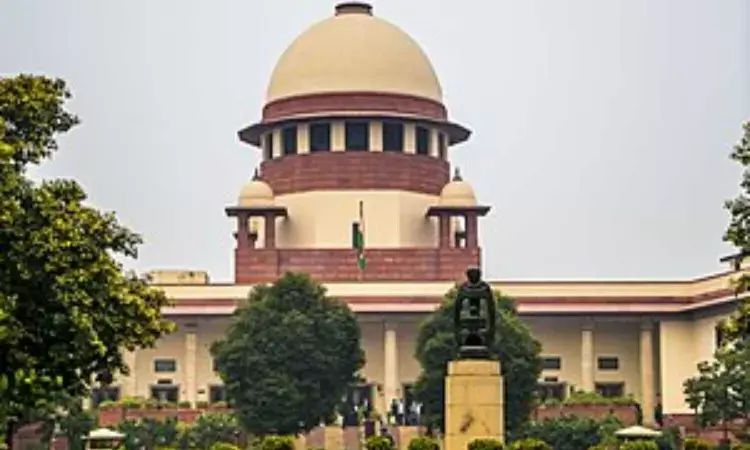- Home
- Medical news & Guidelines
- Anesthesiology
- Cardiology and CTVS
- Critical Care
- Dentistry
- Dermatology
- Diabetes and Endocrinology
- ENT
- Gastroenterology
- Medicine
- Nephrology
- Neurology
- Obstretics-Gynaecology
- Oncology
- Ophthalmology
- Orthopaedics
- Pediatrics-Neonatology
- Psychiatry
- Pulmonology
- Radiology
- Surgery
- Urology
- Laboratory Medicine
- Diet
- Nursing
- Paramedical
- Physiotherapy
- Health news
- Fact Check
- Bone Health Fact Check
- Brain Health Fact Check
- Cancer Related Fact Check
- Child Care Fact Check
- Dental and oral health fact check
- Diabetes and metabolic health fact check
- Diet and Nutrition Fact Check
- Eye and ENT Care Fact Check
- Fitness fact check
- Gut health fact check
- Heart health fact check
- Kidney health fact check
- Medical education fact check
- Men's health fact check
- Respiratory fact check
- Skin and hair care fact check
- Vaccine and Immunization fact check
- Women's health fact check
- AYUSH
- State News
- Andaman and Nicobar Islands
- Andhra Pradesh
- Arunachal Pradesh
- Assam
- Bihar
- Chandigarh
- Chattisgarh
- Dadra and Nagar Haveli
- Daman and Diu
- Delhi
- Goa
- Gujarat
- Haryana
- Himachal Pradesh
- Jammu & Kashmir
- Jharkhand
- Karnataka
- Kerala
- Ladakh
- Lakshadweep
- Madhya Pradesh
- Maharashtra
- Manipur
- Meghalaya
- Mizoram
- Nagaland
- Odisha
- Puducherry
- Punjab
- Rajasthan
- Sikkim
- Tamil Nadu
- Telangana
- Tripura
- Uttar Pradesh
- Uttrakhand
- West Bengal
- Medical Education
- Industry
Court cannot decide what should be taught in medical education- SC junks plea seeking changes in medical syllabus

Supreme Court of India
New Delhi: The Supreme Court recently refused to entertain a Public Interest Litigation (PIL) seeking changes in the medical syllabus. While considering the issue, the Apex Court bench led by Chief Justice of India (CJI) BR Gavai clarified that the court cannot take up the responsibility to decide what should be taught in medical education.
"This is not our work. We cannot decide what syllabus should or shouldn’t be. Approach the university or govt," remarked the top court bench comprising CJI Gavai, while further observing that syllabus-related issues fell within the domain of academic bodies and the government and therefore they must be addressed by expert authorities and not decided through judicial intervention.
With this observation, the top court bench declined to entertain the public interest litigation.
Also Read: Breaking News: NMC Finalises NEET 2025 Syllabus, Check Details
As per the latest media report by Law Chakra, although the court declined to entertain the PIL, it left the matter open for the petitioner to approach the appropriate authorities, such as the concerned universities or the government, if they still wished to pursue the issue.
In India, it is the National Medical Commission (NMC), the Apex Medical Education Regulatory Body, which prepares the syllabus, curriculum, and standards for medical education across India and makes changes from time to time.
Structurally, NMC comprises of four autonomous boards, including the Undergraduate Medical Education Board (UGMEB) and the Postgraduate Medical Education Board (PGMEB), the Ethics and Medical Registration Board (EMRB), and the Medical Assessment and Rating Board (MARB).
While UGMEB and PGMEB are in charge of designing and updating the syllabus for MBBS, MD, MS, and other medical courses, MARB is in charge of ensuring that the medical colleges meet the regulatory standards, and Ethics Board promotes professional ethics, regulations professional conduct to ensure adherence to ethical codes, and also deals with issues of ethical or professional misconduct of doctors.
M.A in English Barsha completed her Master's in English from the University of Burdwan, West Bengal in 2018. Having a knack for Journalism she joined Medical Dialogues back in 2020. She mainly covers news about medico legal cases, NMC/DCI updates, medical education issues including the latest updates about medical and dental colleges in India. She can be contacted at editorial@medicaldialogues.in.


